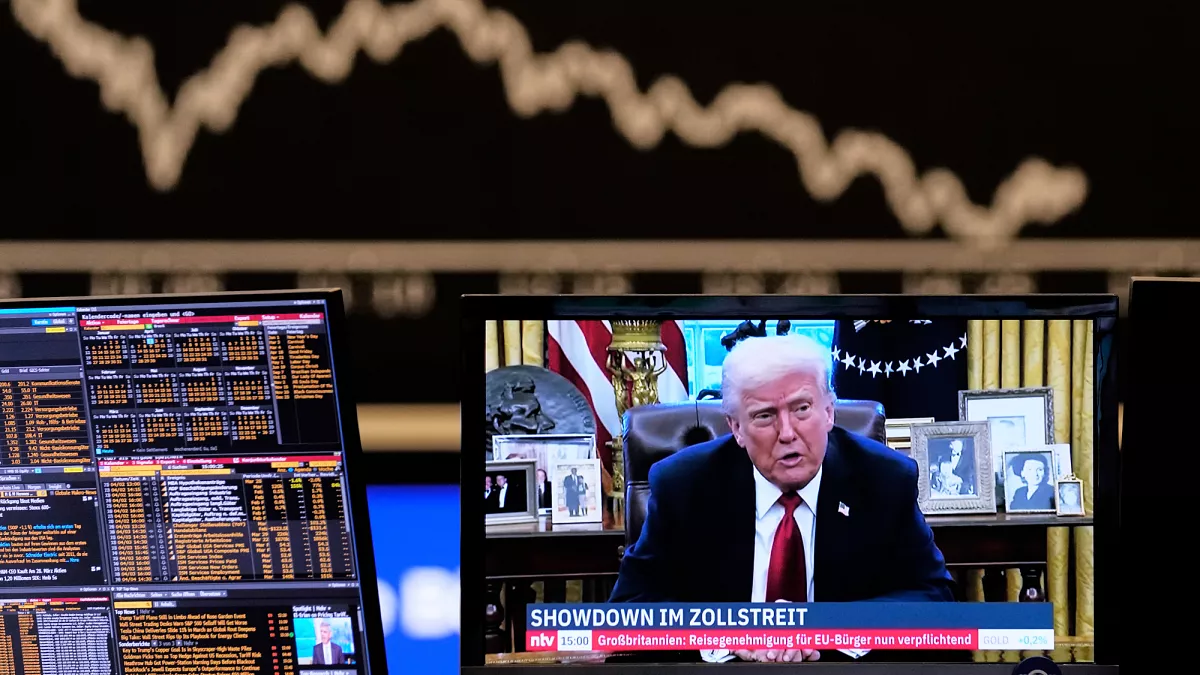
Introduction: A Turbulent Yet Optimistic Market Landscape
The global financial markets have recently experienced a mix of volatility and resilience, driven by geopolitical developments, trade policies, and regulatory actions. Notably, the FTSE 100 index has been performing positively despite ongoing tensions surrounding international trade tariffs and regulatory scrutiny. Recent reports reveal a nuanced picture: while certain sectors are facing headwinds such as increased tariffs and regulatory fines, others are demonstrating resilience and investor confidence. This article explores the recent market dynamics, examining the factors contributing to the FTSE’s rise and the implications of notable news from the corporate and political fronts.
The Impact of U.S. Trade Policies on the FTSE 100
Trump’s New Tariff Rates and Their Global Ripple Effects
The United States, under President Donald Trump’s administration, announced new tariff rates that have sent ripples across global markets. These tariffs, primarily targeted at specific imports, aim to bolster domestic industries but have also stirred concerns about retaliatory measures and global trade disruptions.
Investors worldwide are closely monitoring how these tariffs impact multinational companies listed on the FTSE 100, many of which have extensive business operations across the Atlantic. The expectation is that increased costs for imported goods could lead to margin pressures and shifts in supply chain strategies. However, despite these concerns, the FTSE 100 has recently ascended, reflecting a complex interplay of optimism and caution among investors.
The FTSE’s resilience can be attributed to several factors, including the market’s anticipation that such tariffs may be negotiated or mitigated in the near term. Additionally, certain sectors such as financial services and commodities have shown strength, offsetting broader uncertainties.
Sector-wise Analysis
- Financials: The UK financial sector, comprising major banks and insurers, continues to benefit from stable interest rates and a relatively strong pound, helping to propel the FTSE upward.
- Mining and Commodities: As global demand for raw materials persists, mining companies listed on the index have received a boost, partly due to rising commodity prices.
- Consumer Goods and Retail: Despite economic uncertainties, the resilience of certain retail chains and consumer-focused firms has contributed to the positive market sentiment.
The Monzo Fining: What Does It Mean for Digital Banking?
Details of the £21 Million Fine
Amidst the broader economic landscape, Monzo, one of the UK’s fastest-growing digital banks, found itself embroiled in regulatory issues. The Financial Conduct Authority (FCA) imposed a hefty fine of £21 million on Monzo for shortcomings related to crime controls and anti-money laundering (AML) compliance.
This penalty highlights the increasing regulatory scrutiny faced by digital banking platforms, which are often lauded for their innovation but can be vulnerable due to evolving compliance standards. The fine is seen as a reminder for fintech firms to bolster their internal controls and ensure they meet strict regulatory requirements.
Implications for the Digital Banking Sector
- Regulatory Emphasis: The case underscores the importance of robust compliance frameworks in the fintech industry, especially concerning AML and crime prevention measures.
- Investor Confidence: Such regulatory actions may cause short-term caution among investors but also serve as a catalyst for banks like Monzo to enhance their systems.
- Market Competition: The fine could influence customer perceptions and competitive positioning, prompting fintechs to prioritize transparency and regulatory adherence.
Market Sentiment and Investor Outlook
Despite the challenges posed by tariffs and regulatory fines, the current market outlook remains cautiously optimistic. Investors appear to be betting on the resilience of key sectors and the potential for diplomatic negotiations to ease trade tensions. Moreover, the fintech sector’s ongoing efforts to align with regulatory standards suggest a maturing ecosystem capable of weathering regulatory storms.
Furthermore, the FTSE 100’s recent rise may also reflect broader macroeconomic factors such as Brexit sentiment, monetary policy stances, and global growth forecasts. The UK’s economic recovery trajectory, coupled with strategic corporate moves, continues to underpin investor confidence.
Conclusion: Navigating Uncertainty with Strategic Focus
The recent developments—namely the introduction of new tariffs by the U.S. and the substantial fine imposed on Monzo—highlight the volatile yet resilient nature of current global markets. While trade tensions may bring short-term disruptions, companies and investors are increasingly focusing on strategic adaptations, compliance upgrades, and sector-specific strengths that support market recovery and growth.
Ultimately, the FTSE 100’s positive trend amidst these complex factors underscores the importance of a balanced approach to investment, regulatory vigilance, and geopolitical awareness in ensuring sustained economic stability.
Final Thoughts
Markets are inherently cyclical and influenced by a myriad of factors. Staying informed about geopolitical shifts, regulatory changes, and corporate news is essential for investors aiming to navigate these turbulent waters successfully.
For more updated news please keep visiting Prime News World.








